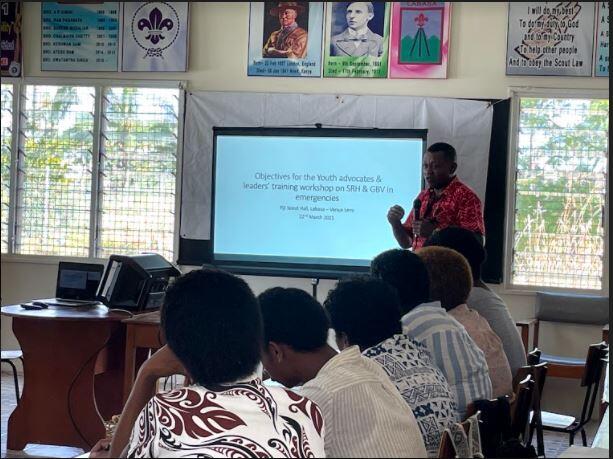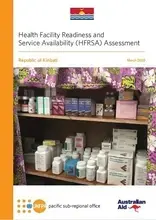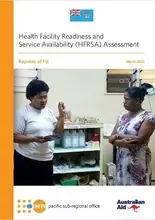The United Nations Population Fund (UNFPA) expands the possibilities for women and young people to lead healthy and productive lives; delivering a world where every pregnancy is wanted, every birth is safe and every young person’s potential is fulfilled.
A five-day training workshop on sexual reproductive health and gender-based violence during emergencies in Vanua Levu has equipped the women and young people with the requisite knowledge and skills to support the provision of quality and lifesaving information and services during emergencies to strengthen the community preparedness and resilience through them.
UNFPA Pacific in partnership with the Ministry of Youth and Sports, together with the Ministry of Health and Medical Services, and with the support from the Reproductive and Family Health Association of Fiji and the International Planned Parenthood Federation facilitated the training. UNFPA along with the government and people of Fiji is committed to increasing the capacity of youth advocates and leaders to engage, understand and respond to the health needs of young people and specifically mobilize young women to access youth-friendly Reproductive Health and Gender-Based Violence services through the Women Friendly Spaces (WFS). The Participant of the training was the youth advocates as well as selected youth leaders by the Ministry of Youth and Sports.
In the aftermath of the Tropical Cyclone Yasa, UNFPA Pacific, with the Ministry of Health and Medical Services and the Ministry of Women and Poverty Alleviation, established six WFS in Seaqaqa, Lekutu, Wainunu, Kubulua, Nakorovatu, and Kia Island. The purpose of these spaces is for women and girls to freely interact and continue having access to their sexual and reproductive health services, including family planning methods, and get referred for supportive services for those surviving gender-based violence.
UNFPA Pacific Director and Representative, Dr Jennifer Butler stated that the UNFPA believes that young people should live to their fullest potential, and our work in the Pacific is premised on fully engaging youth leaders and advocates like you in understanding and taking action on sexual reproductive health and gender-based violence issues.
“According to 2017 census data, almost one out of every five Fijians is between the ages of 15-24 and when younger adolescents aged 10-14 are included, you have one in every four Fijians between 10-24 years. Further to this, reports from the Ministry of Health in 2017 estimated that 29 live births are delivered by girls aged 15 to 19 for every 1000 girls of the same age group”, Dr Butler added.
She said that these figures show that Fiji has a huge population of young people but unfortunately, they are faced with multiple challenges of sexual reproductive health nature like high teenage pregnancy rates.
According to Dr Butler, it was noted that young people especially girls have not taken full advantage of the WFS and are against this background that we decided to build our capacity as leaders and advocates towards supporting community mobilization, providing basic first aid counselling, and referral of especially young women to the spaces and affiliated health facilities for the much-needed services.
One of the participants, Vani from Labasa, highlighted that these issues and topics are regarded as taboo in their culture however, she said the training helped her to overcome all the fear which has enabled her to freely discuss these pressing issues with her family members.
“We usually don’t talk about SRH, teenage pregnancies, and other sensitive issues with our family especially with our daughters, but after this training, I feel that it’s really important for us to talk about it and get familiar with these topics,” she said.
Thirty-five participants have attended and benefitted from the entire training and have been certified by the Ministry of Youth and Sports as well as UNFPA.





